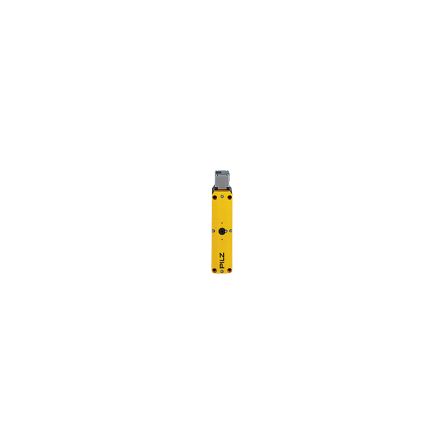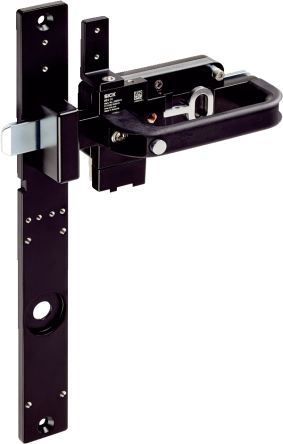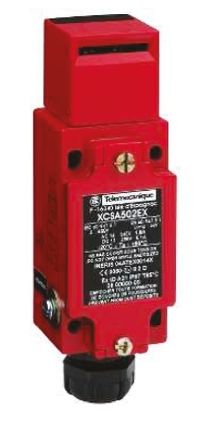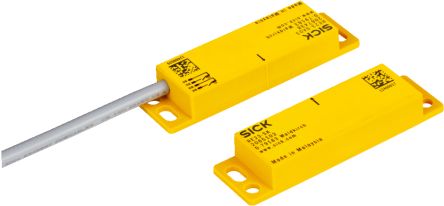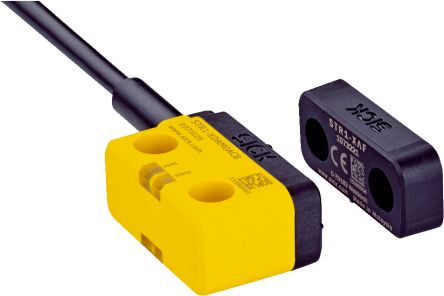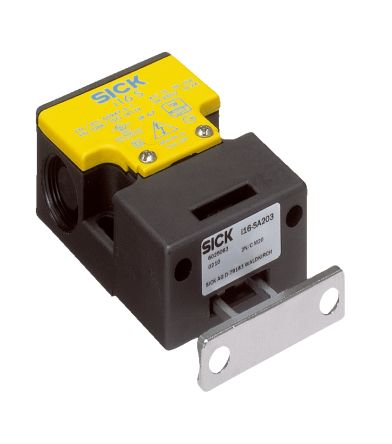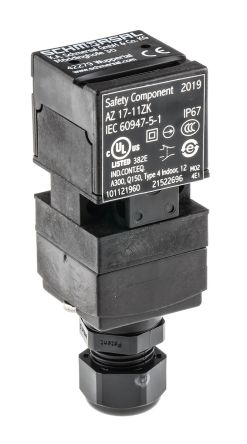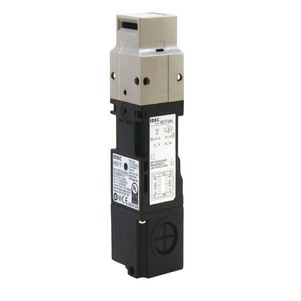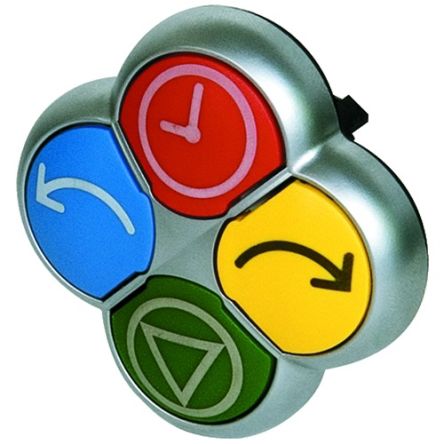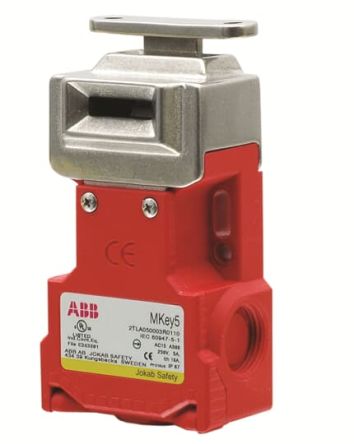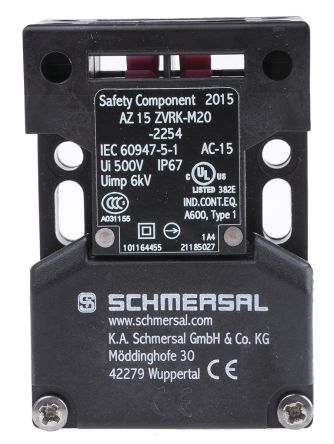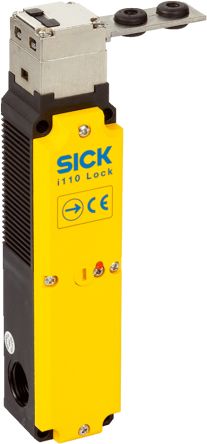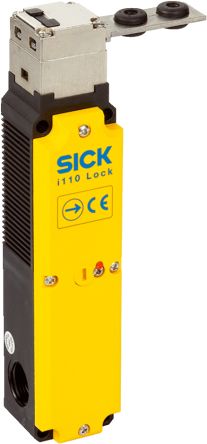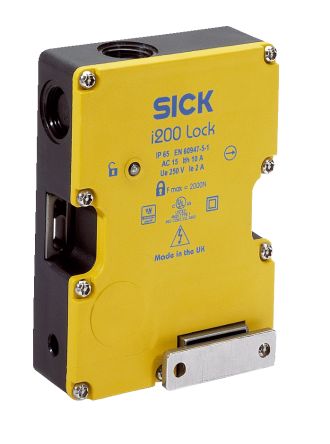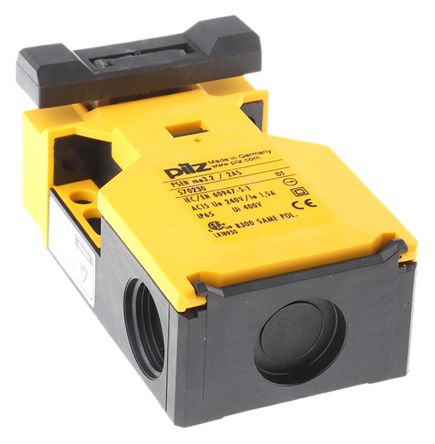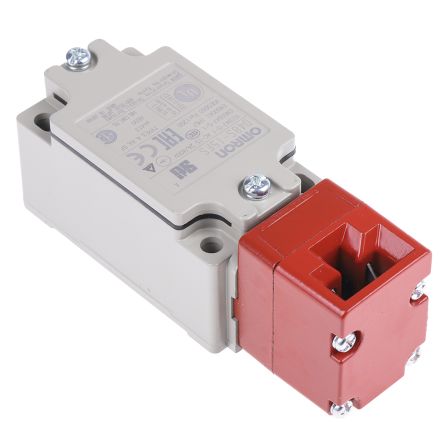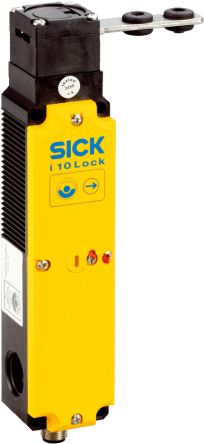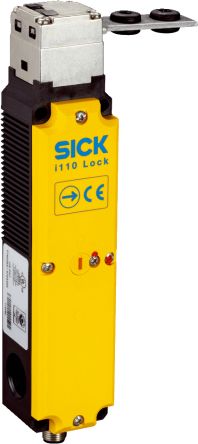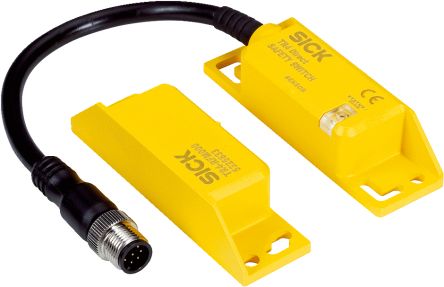- Automation & Control Gear
- Cables & Wires
- Enclosures & Server Racks
- Fuses & Circuit Breakers
- HVAC, Fans & Thermal Management
- Lighting
- Relays & Signal Conditioning
- Switches
- Batteries & Chargers
- Connectors
- Displays & Optoelectronics
- ESD Control, Cleanroom & PCB Prototyping
- Passive Components
- Power Supplies & Transformers
- Raspberry Pi, Arduino, ROCK, STEM Education & Development Tools
- Semiconductors
Safety Interlock Switches
Safety interlock switches are crucial safety devices used in industrial settings to protect personnel from machinery hazards. These switches are integrated into safety guards or gates, ensuring that machinery cannot operate when the guard is open, preventing worker access to dangerous moving parts.
Safety Interlock Switch Functions
In industrial situations, safety-rated interlock switches prevent or permit the use of machinery, depending on safety conditions. They allow electrical currents to pass through the machine when it is safe to operate, such as when the machine's guard is closed.
Safety interlock systems also cut off the power if there is a potential hazard, such as an open guard. When a dangerous piece of equipment such as a metalworking machine is in operation, safety interlock switches might be used to ensure safety gates remain closed, preventing workers from entering hazardous areas. These switches can vary in lock type, maximum current and voltage, and housing material. They are also specifically designed to meet high machine safety standards.
Types of Safety Interlock Switches
Guard Interlock Switch
Guard interlock switches, also known as guard locking switches, provide a robust safety mechanism by physically preventing worker access to hazardous areas while machinery is in operation. The guard detects movement, remaining open and preventing the machine from operating until the risk of injury has passed. Guard switches are particularly important for machines that pose a significant risk of injury or have long stopping times.
Mechanical Interlock Switch
Mechanical interlock switches utilise a physical connection between the switch and the machine guard. This direct connection ensures that the switch is actuated only when the guard is in the closed and secured position. Mechanical safety interlock switches are reliable and tamper-proof, making them suitable for applications where a high level of security is required.
Magnetic Interlock Switch
Magnetic interlock switches rely on magnetic sensors to detect the position of the guard or door. These switches offer non-contact detection, making them suitable for applications where hygiene is critical or where traditional mechanical switches may be prone to wear and tear due to dust or debris. Magnetic interlock switches are often used in the food and beverage industry, pharmaceutical manufacturing, and other clean environments.
Trapped Key Interlock Switch
This keyed safety switch provides a high level of safety by requiring a unique key to access hazardous areas. The key is "trapped" within the interlock mechanism while the guard is open, preventing the machine from starting. To operate the machine, the key must be released from the interlock and inserted into a control panel, ensuring that the guard is closed and secured before operation can begin.
Key Features of Safety Interlock Switches
Actuator
The safety interlock actuator is the component that interacts with the machine guard to operate the switch. Different actuator types, such as flat, standard and semi-flexible, cater to various guard designs and applications.
Contact Configuration
Safety interlock switches are available with different contact configurations, such as normally open (NO) or normally closed (NC), to suit the specific control circuit requirements.
Locking Mechanism
Some safety interlock switches incorporate locking mechanisms that physically prevent the guard from being opened while the machine is running. These mechanisms enhance safety by ensuring that access to hazardous areas is restricted during operation.
Monitoring Functionality
Many modern safety interlock systems include monitoring capabilities that provide feedback on the status of the switch and the guard. This information can be used to diagnose faults, improve safety protocols and enhance machine uptime.
Environmental Protection
Interlocking switches are designed to withstand harsh industrial environments. They typically have high Ingress Protection (IP) ratings, protecting them from dust, moisture and other contaminants.
Industrial Applications for Interlocking Switch
Automated Production Equipment
In automated production lines, electrical interlock switches are crucial for machine safety. They ensure that safety guards on robotic cells, assembly machines and other automated equipment remain closed during operation, preventing worker access to hazardous areas.
Material Handling Equipment
Interlock switches are used on conveyor systems, automated guided vehicles (AGVs), and other material handling equipment to safeguard personnel from moving parts and prevent accidental operation.
Automotive Plants
Automotive manufacturing relies heavily on locking safety switches to protect workers from robotic welding cells, assembly lines and other potentially dangerous machinery.
Pharmaceutical and Chemical Processing
In pharmaceutical and chemical processing plants, interlock switches are used to ensure the safe operation of reactors, mixers and other equipment, preventing accidental exposure to hazardous substances.
Industrial Machinery
Interlock safety devices are vital for safeguarding personnel working with industrial machinery such as presses, cutting machines and packaging equipment.
Machine Tools
Machine tools, including lathes, milling machines and grinders, often incorporate interlock switches to prevent operation when safety guards are open. This protects workers from rotating tools and flying debris.
Trusted Interlock Switches Manufacturer, Supplier and Distributor in Australia
RS Australia is a trusted and leading provider of electrical and industrial products, offering a comprehensive range of safety interlock switches to meet diverse needs. We stock a wide selection of interlock switches from reputable brands like ABB, Omron, and Honeywell.
On top of interlock switches, RS Australia also supplies a wide range of other essential electrical components, including multimeter test leads and current transformers.
Buy Safety Interlock Switches from RS Australia
RS Australia offers a wide selection of safety interlock switches with efficient delivery services across Australia. We offer doorstep delivery and self-collection options, ensuring you receive your equipment when you need it. To learn more about our delivery options and fees, visit our Delivery Page.
